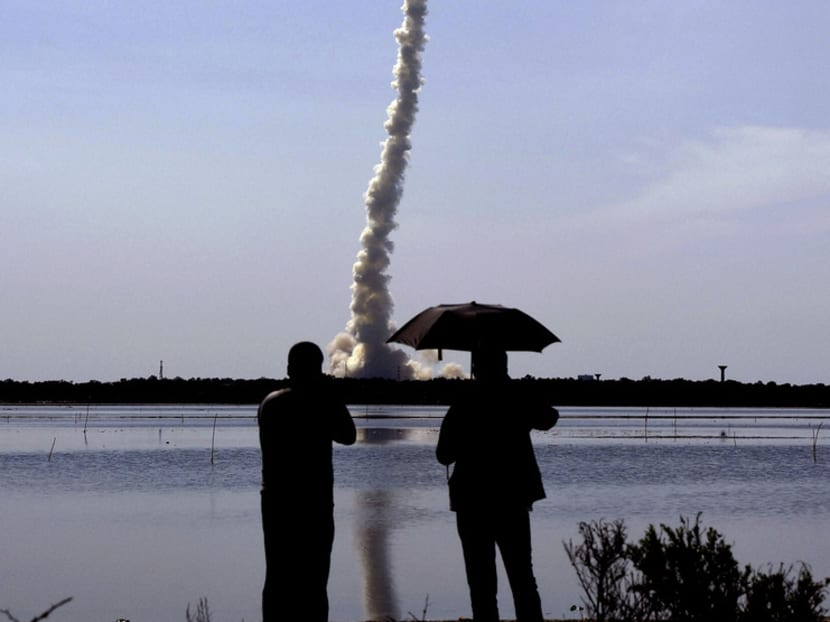Modi hails space rocket’s multi-satellite launch success
NEW DELHI — India’s space programme took a major step forward yesterday with the launch of a rocket carrying satellites that will be deposited in two different orbits — the country’s longest and most complex mission to date.

Since India launched its Satellite Launch Vehicle inJune (above), its space programme has rocketed to success. PHOTO: AP
NEW DELHI — India’s space programme took a major step forward yesterday with the launch of a rocket carrying satellites that will be deposited in two different orbits — the country’s longest and most complex mission to date.
Prime Minister Narendra Modi welcomed the successful launch, saying it marked a “moment of immense joy and pride for India”, and that the country’s rocket scientists “keep scripting history”.
The rocket carried eight different satellites into space — three Indian and five foreign-made — on a mission lasting more than two hours. The twin-orbit launch is a difficult and unusual technical achievement that was also recently accomplished by the European Space Agency’s Vega rocket.
The launch was the latest in a line of recent successes for India’s expansive and occasionally controversial space programme — one that is tied up with the country’s identity as an independent state.
Jawaharlal Nehru, India’s first Prime Minister, wrote about the solar system from his prison cell in the 1930s and when in power spoke of his belief that an independent India should play a part in scientific exploration.
In more recent years, the programme has become one way of competing with China. In the middle of the last decade, the two countries raced to be the first to send a craft to the moon — a race eventually won by the Chinese. Since then the Indian Space Research Organisation (ISRO) has chalked up a number of successes, often far more cheaply than international efforts.
In 2014, it beat China and all other Asian nations to become the fourth country to launch a satellite to orbit Mars. That was achieved at a cost of just US$74 million (S$101 million), around one-250th the size of the 2016 budget of the United States’ National Aeronautics and Space Administration. But the programme has also been controversial, with some both at home and abroad saying the money would be better spent on terrestrial priorities.
Mr Madhavan Nair, the former ISRO chairman, called the Mars mission “utter nonsense”, “moonshine” and “not value for money”.
Mr Harsh Mander, an Indian social activist, has previously said: “In an India in which 230 million people sleep hungry each night, in which many million lack even basic healthcare, decent housing, clean water and sanitation, it reflects a remarkable indifference to the dignity of the poor to spend on a Mars mission.”
Meanwhile, the United Kingdom recently announced it would end international aid to India, with many of the country’s politicians arguing that it should not be sending billions of pounds to a country with its own space programme.
Yesterday’s launch, however, has turned attention for now back on to the successes of the ISRO. As Mr Kiran Kumar, ISRO chairman, told Indian television yesterday: “This is a challenging two-in-one mission which puts India in a unique league of nations having the capability to achieve two different orbits in a single mission.” FINANCIAL TIMES





